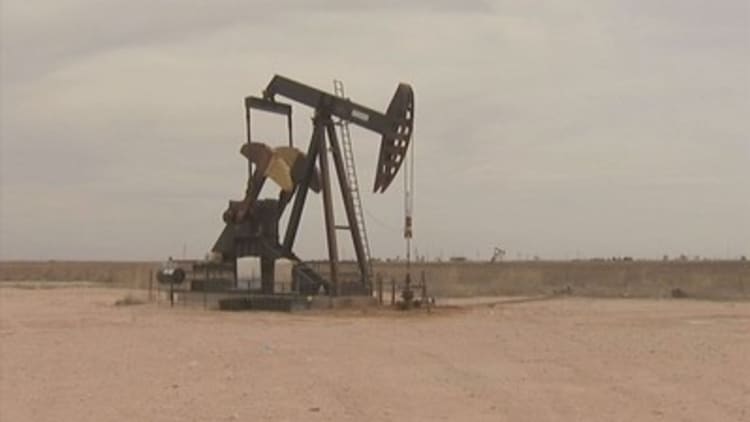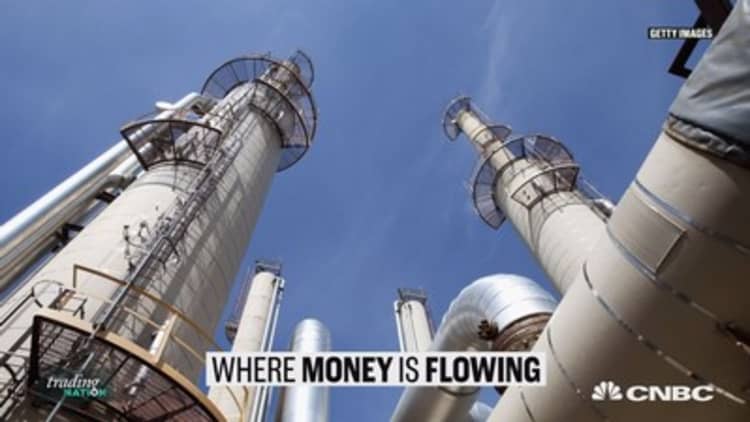
Oil prices fell more than 3 percent on Wednesday, sharply pulling back from their longest bull-run in more than five years, as climbing OPEC exports turned sentiment more bearish.
Brent crude futures, the international benchmark for oil prices, were at $48.23 per barrel at 10:34 a.m. ET (1434 GMT), down $1.38, or 2.8 percent, from their last close.
U.S. West Texas Intermediate (WTI) crude futures were at $45.49 per barrel, down $1.58, or 3.4 percent.
"The air is getting thin for oil prices. The price increase just ran out of steam, which is not very surprising, given the newsflow of rising OPEC supplies," said Carsten Fritsch, senior commodity analyst at Commerzbank.
Despite the dips, both markets have recovered more than 10 percent from recent intraday lows on June 21, although crude prices seem locked below $50 per barrel.

"Oil bulls have numerous obstacles to overcome," said Stephen Schork of the Schork Report, pointing to rising OPEC output and high production in the United States.
Oil exports by the Organization of the Petroleum Exporting Countries climbed for a second month in June, Thomson Reuters Oil Research data showed.
OPEC exported 25.92 million barrels per day (bpd) in June, up 450,000 bpd from May and 1.9 million bpd more than a year earlier.
CNBC reported last week that shipments from top oil exporter Saudi Arabia and other OPEC members were on the rise in June, citing analysis by tanker tracking firm ClipperData.
The rise in exports comes despite OPEC's vow to rein in production until March 2018 and follows hot on the heels of Reuters' monthly OPEC production survey which found output jumped to a 2017 high last month as OPEC members Nigeria and Libya continued to pump more.
Nigeria and Libya are both exempt from the output pact.
The head of the International Energy Agency told Reuters that rising output from key oil producers could hamper expectations that the oil market would rebalance in the second half of the year.

Despite ample supplies, traders said that prices were kept from falling further due to global security risks following North Korea's repeated missile tests and the political crisis between Qatar and an alliance of Arab nations led by Saudi Arabia and the United Arab Emirates.
"Rising geopolitical risks should provide some support to gold and oil prices," ANZ bank said on Wednesday.
Another analyst said the strong dollar provided less incentive to invest in greenback-denominated commodities such as crude oil.
Traders were also eyeing weekly U.S. crude inventory data, delayed by a day due to the U.S. public holiday on Tuesday.
A Reuters poll showed analysts expected weekly crude stocks to have fallen by 2.8 million barrels. The weekly data showed a surprise rise in inventories last week.
Underlining an expected shift in longer term oil demand, car group Volvo said on Wednesday that from 2019 all of its new models would be fully electric or hybrid vehicles.
— CNBC's Tom DiChristopher contribute to this report.
WATCH: What if oil doesn't see $50 again?


